This week’s shocking and unprovoked invasion of Ukraine by Russian and Belarusian forces has plunged the nation of over 43 million into conflict, and in such times, sports should naturally take a back seat to more pressing developments. But as we are so often reminded, sports are not so easily separated from geopolitical issues, and the recent push to sanction and isolate Russia has presented complicated questions about the role of international sports in a turbulent world, questions that have decades of precedent.
The most famous examples of the interference of geopolitics with international sports are the Olympic boycotts of 1980 and 1984, in which the United States and its allies boycotted the Moscow games, followed by an Eastern Bloc boycott of the Los Angeles games. These boycotts are generally thought of poorly in hindsight, certainly from the athletic community, as they hurt the athletes who missed out on once-in-a-lifetime chances more than they could possibly have hurt the opposing superpower. Both the CEO of the US Olympic Committee and then-Vice President Walter Mondale offered partial apologies to affected athletes, but only 40 years later.
But in a broader sense, the boycotts violated one of the main principles of the Olympics and international sports, the same principle that Baron Pierre de Coubertin created the modern Olympics to honor: that international competition at the highest level could, if even for a fortnight, inspire and break down barriers between the countries of the world in the name of sport. Sports are supposed to transcend political lines, not be beholden to them, right?
Of course, things are not that simple. First of all, what constitutes a “political disagreement” as opposed to a legitimate humanitarian interest is entirely subjective. We might agree that the Russian invasion of a sovereign Ukraine is worthy of severe repercussions, but how about human rights violations in China, Qatar, or Saudi Arabia, all of which regularly host massive sporting events? At the same time, to what degree should we allow the sins of a government to punish perfectly innocent athletes?
These questions are being answered in real time this week. Take, for example, Formula One, which might be the most international sports league in the world, with teams based in seven countries, drivers from 14 countries, and races held in 20 countries around the world. One of those races was scheduled to take place in Sochi, the Russian city that hosted the 2014 Winter Olympics; after widespread pressure from fans, media, and drivers — including four-time world champion Sebastian Vettel saying he would not race in Russia even if the race was held there — the race has been suspended.
But the more interesting entanglement with Russia is in the garage of Haas F1 Team as preseason car testing gets underway. Intriguingly, Haas is the only American team on the F1 grid, but since last season, they have been sponsored by Russian fertilizer producer Uralkali, leading to their car livery being based largely on the Russian flag. What’s more, one of Haas’ drivers is Nikita Mazepin, the son of Dmitry Mazepin, a billionaire Russian oligarch who is a major Uralkali shareholder and among the oligarchs that met with Vladimir Putin on Thursday to discuss sanctions.
Haas has removed Uralkali branding and Russian colors from the team car, but the question of what to do with Nikita Mazepin is more complex. Mazepin was the consensus worst driver in Formula One last season, and Formula One seats are a rare commodity that few drivers get a shot at; without the backing of Russian capital, Mazepin’s seat would very likely belong to a better driver.
But Mazepin is far from the only driver to come from big money — wealthy parents are more the norm than the exception in F1 — and if, as seems all but certain, Uralkali is out as the main sponsor of Haas, he stands to lose his Formula One seat through little fault of his own. It’s a sticky situation, but one that exemplifies the inherent complications when sports, finance, and international politics — two out of three things you should never talk about at a dinner table — intersect.
There is also the question of whether Russian athletes can, should, or should be expected to speak out against their government’s actions. It might be easy for Americans, who have relative freedom of speech and can criticize their government all they want, to decry influential Russians who don’t exercise those rights. For athletes who just want to keep their heads down and play their sport, doing so could jeopardize their careers and livelihoods, especially in a nation where thousands have already been arrested for protesting the invasion of Ukraine. To ask an athlete to put so much at stake for little material benefit to anyone is unfair.
But this only makes the stands taken by the Russian athletes who have spoken against the war, even if not directly against Putin, all the more impressive. Alexander Ovechkin, a three-time NHL MVP and probably the foremost Russian athlete in the United States, made a broad appeal against the war on Friday. Ovechkin’s statement was indirect, but given that he is a longtime supporter of Putin who helped campaign for the Russian president in 2017 — Ovechkin’s Instagram profile photo is an image of him with Putin — even this message is a break from expectations.
Another appeal for peace came from tennis player Daniil Medvedev, who in the next rankings will be crowned the top player in the world, the first since 2004 not named Djokovic, Federer, Nadal, or Murray to do so. But the announcement of this achievement was made the day of the Russian invasion, and Medvedev is likely to lose that ranking after being soundly defeated by Rafael Nadal at the Mexican Open.
Medvedev admitted that tennis wasn’t always at the front of his mind. “In this moment, you understand that tennis sometimes is not that important … It was definitely not easy to play,” said Medvedev. “By being a tennis player I want to promote peace all over the world… We play in so many different countries. I’ve been in so many different countries as a junior and as a pro. It’s just not easy to hear all this news. I’m all for peace.”
Perhaps the most poignant statement from a Russian athlete was from Andrey Rublev, ranked seventh in the world, who wrote “No war please” on the television camera after his semifinal win at the Dubai Championships, clearly emotional about the geopolitical events.
“In these moments, you realize that my match is not important. It’s not about my match, how it affects me,” Rublev said after the match. “What’s happening is much more terrible. You realize how important [it] is to have peace in the world and to respect each other no matter what, to be united.” Rublev, it should be noted, is doubles partners with his longtime friend, the Ukrainian Denys Molchanov.
Image courtesy of TSN


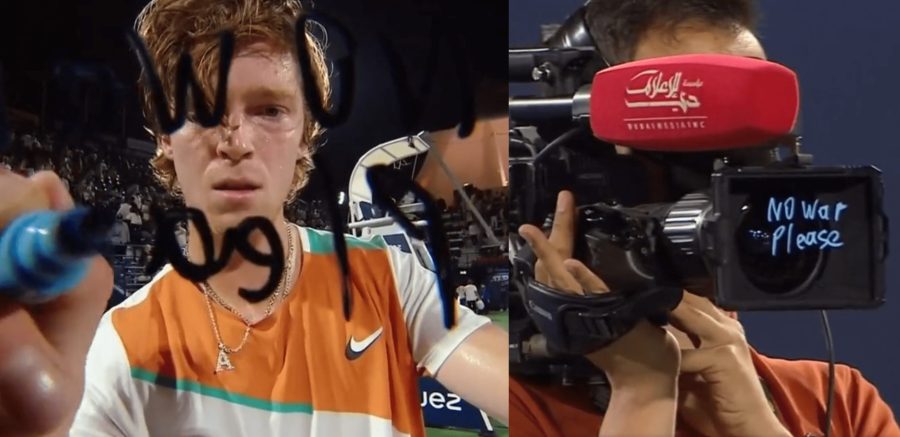
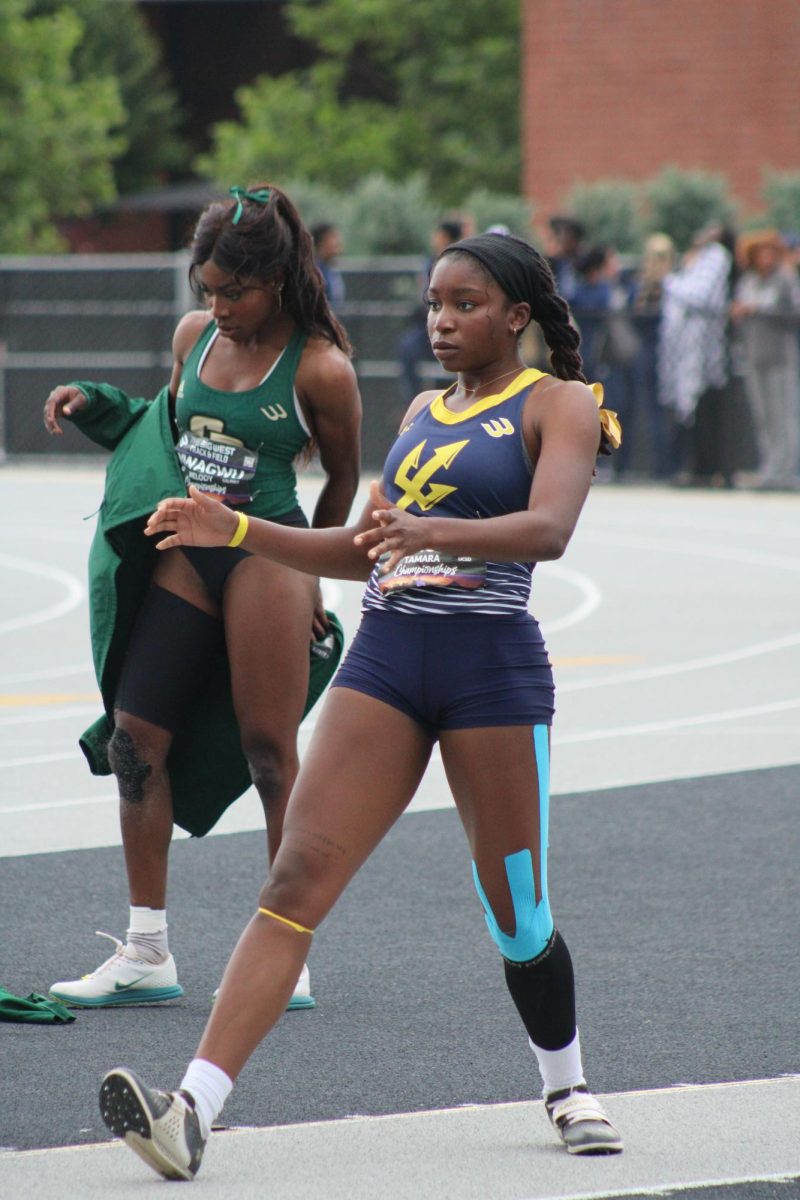
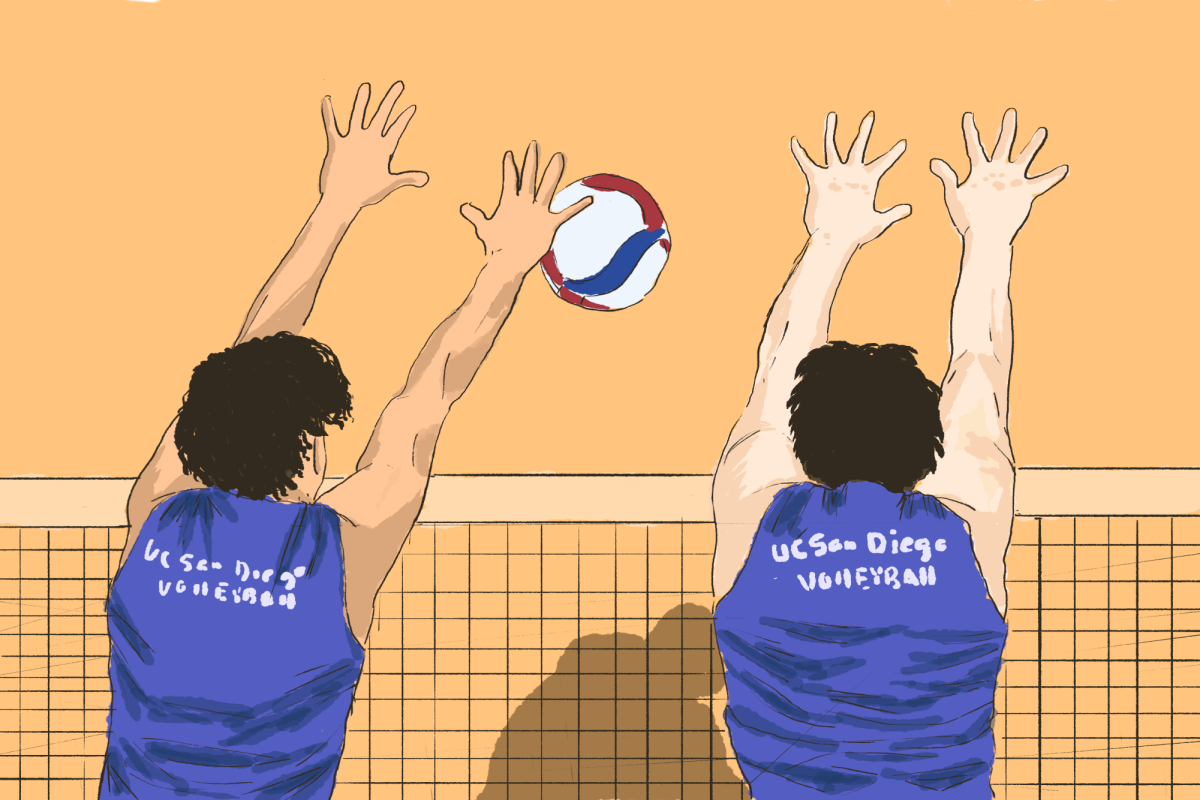
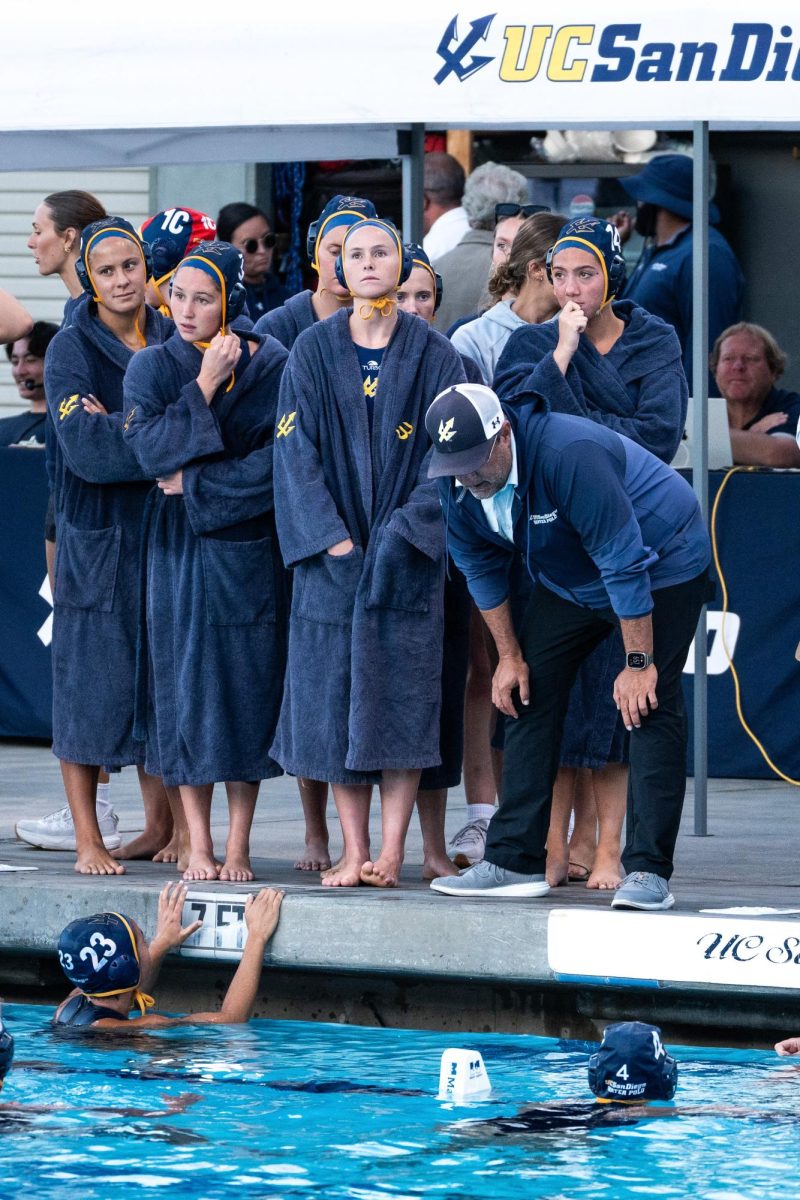

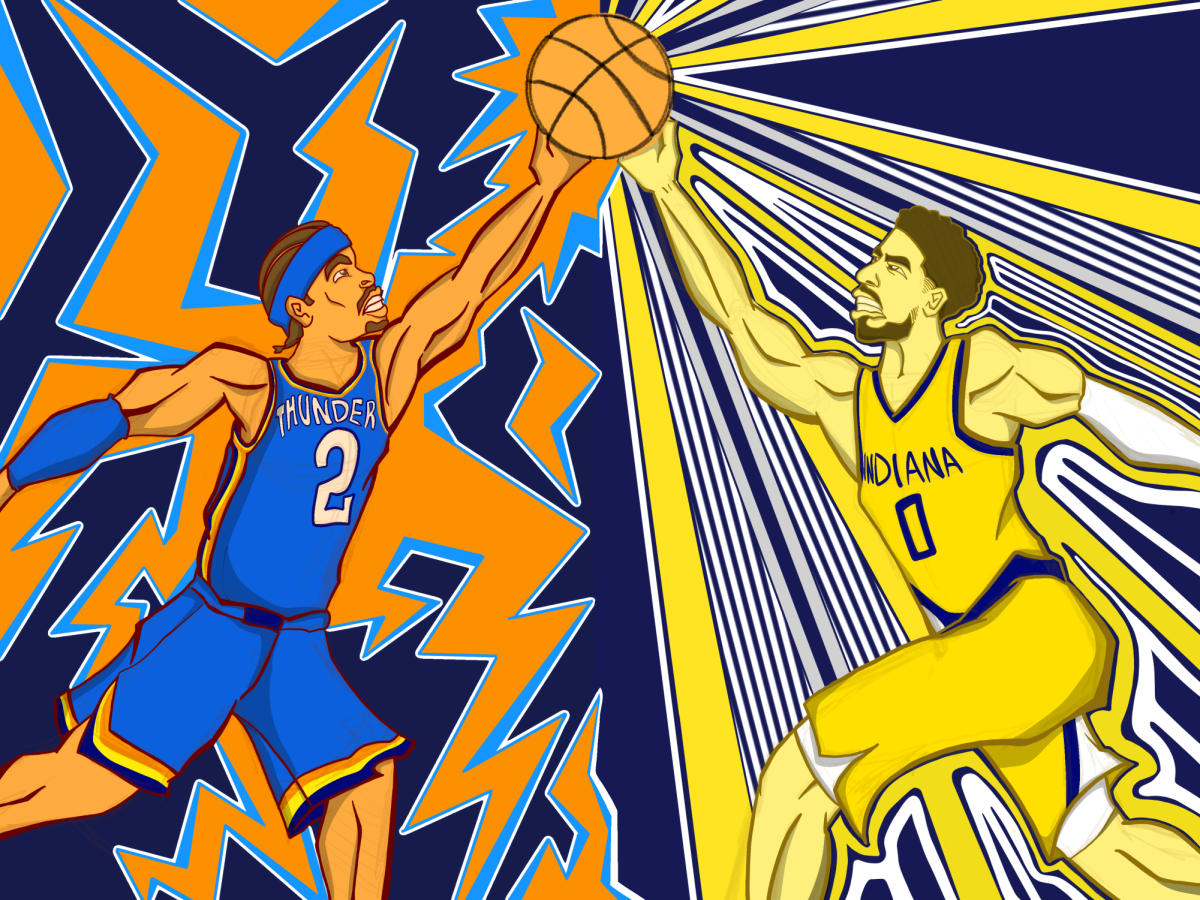
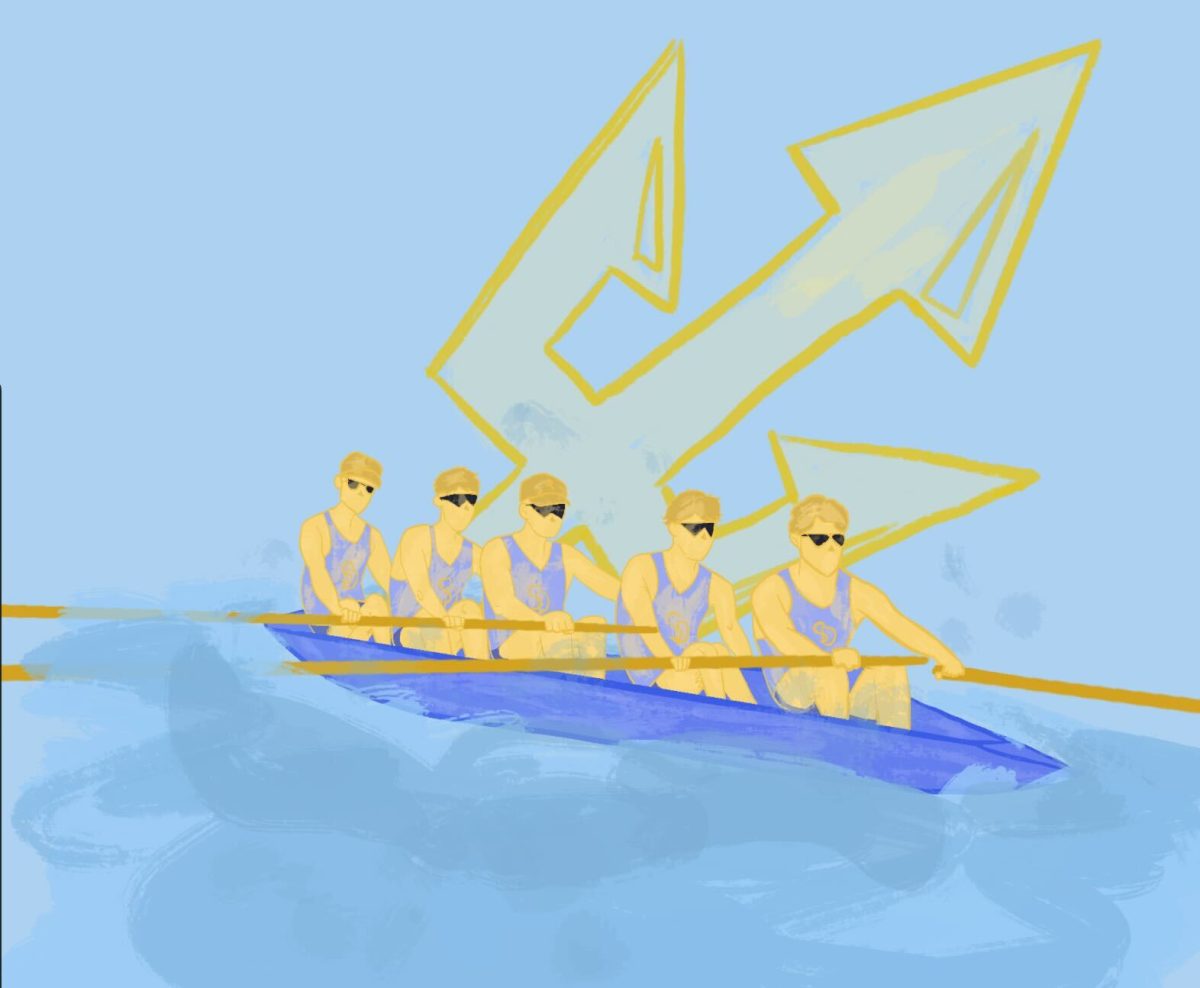
Adam • Mar 31, 2022 at 7:34 am
In fact, support around the world is very strong now, and everyone is just saying that it’s impossible to support Russian aggression, and it’s worth introducing even greater sanctions so that this war ends